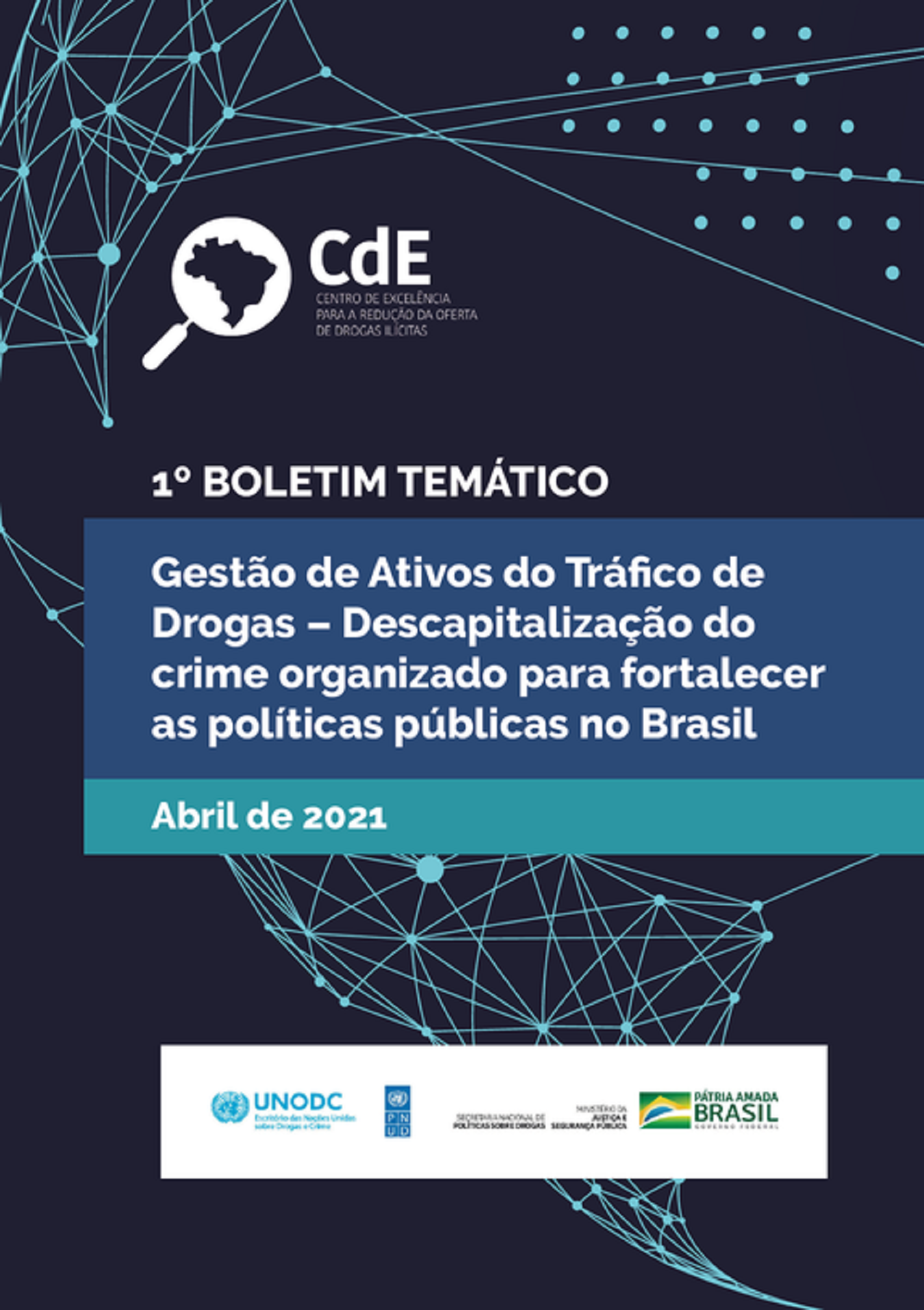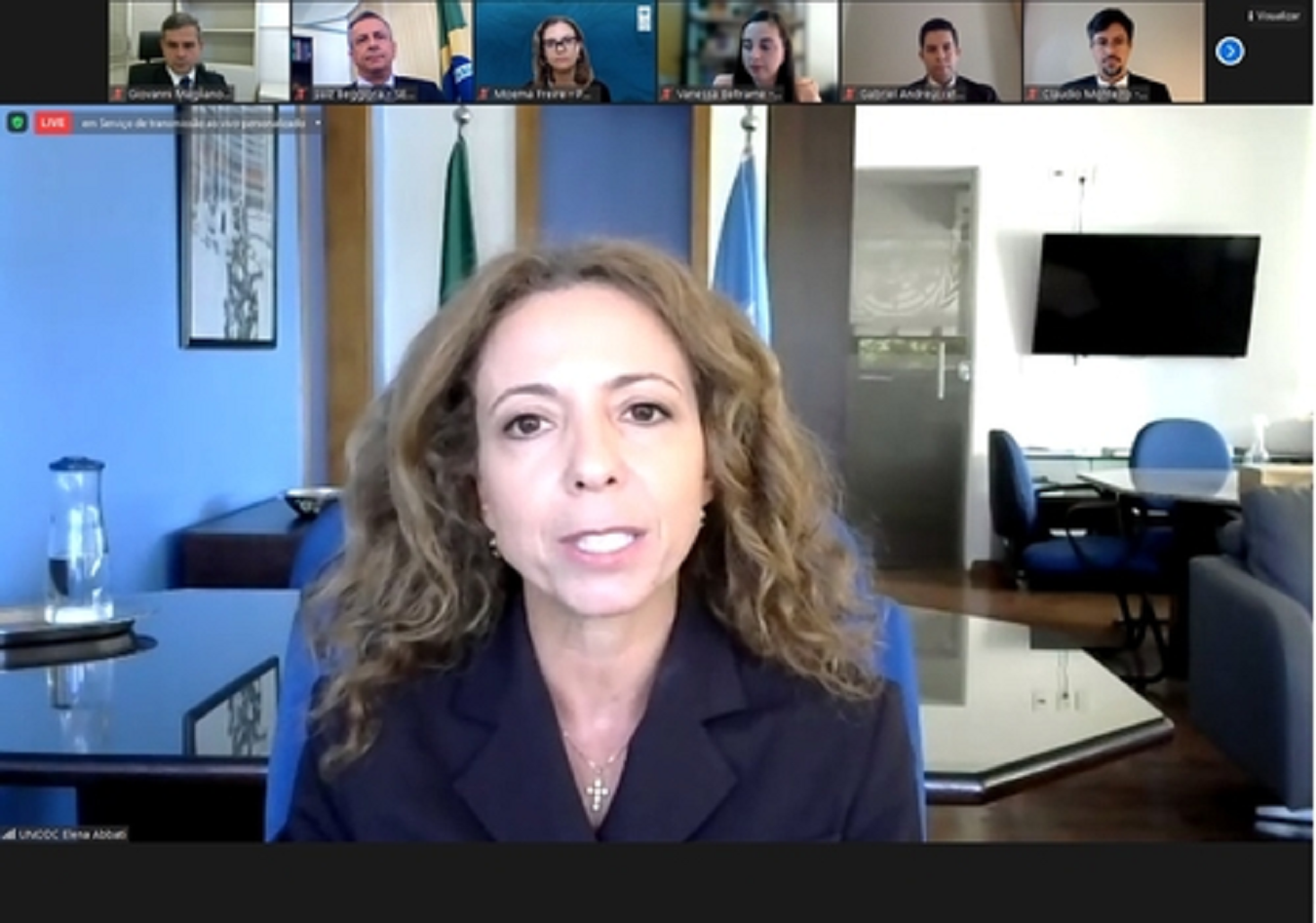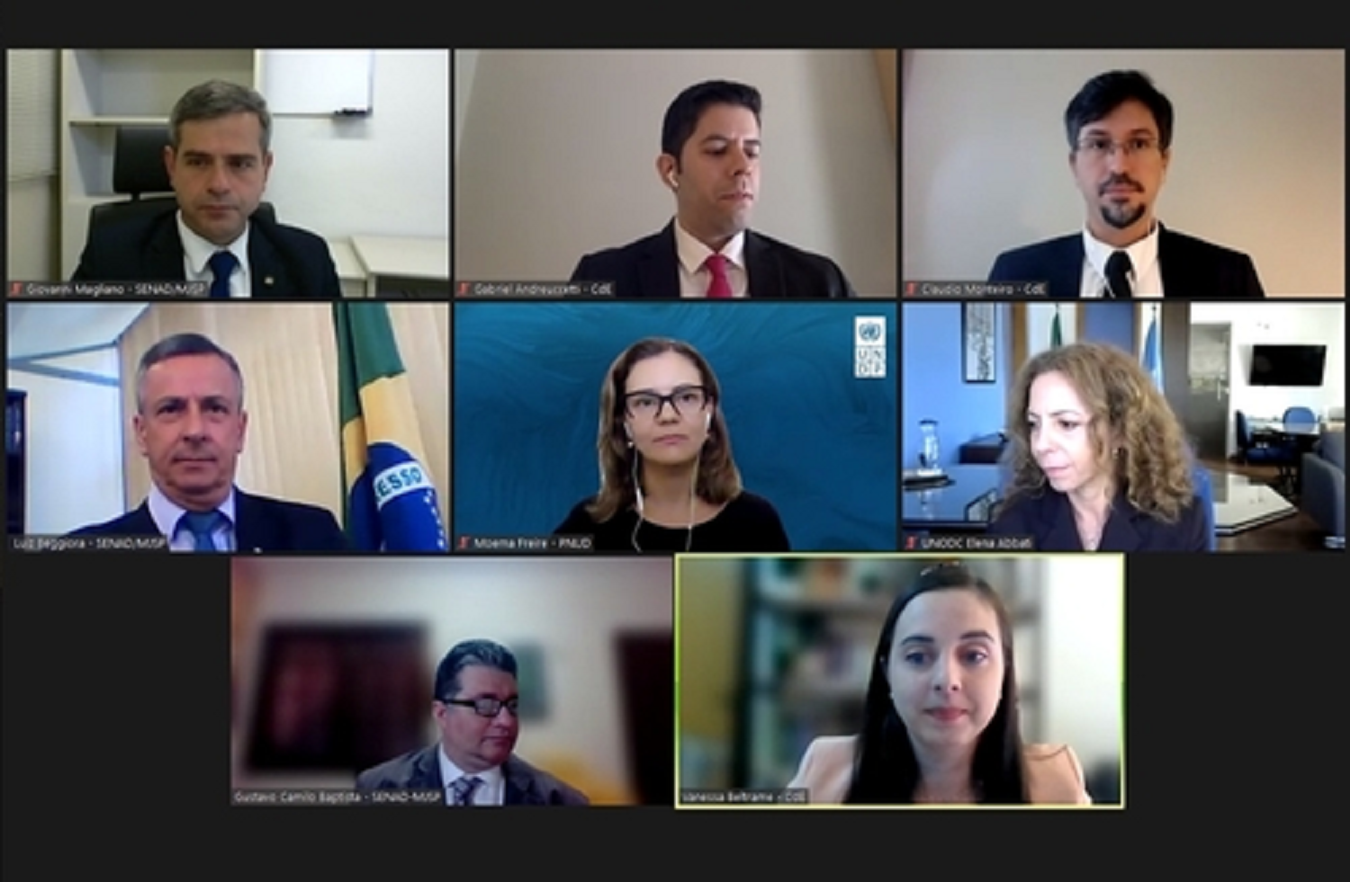
This Wednesday (2), the Center of Excellence for Illicit Drug Supply Reduction (CoE) launched the first thematic bulletin produced under the pilot project, in an online event broadcasted on the CoE YouTube channel.
Entitled "Asset management of drug trafficking - decapitalizing organized crime to strengthen public policies in Brazil", the document presents promising practices from the international scenario and points out that Brazil has aligned itself to global experiences in combating drug trafficking. One of these strategies is precisely the financial disarticulation of criminals through the confiscation of assets acquired through illicit enrichment and the reversal of seized assets in favor of the Union to invest in prevention policies and the fight against drugs.
The CoE is an innovative pilot project, the result of a cooperative partnership between the National Secretariat for Drug Policy of the Ministry of Justice and Public Security (SENAD/MJSP), the United Nations Office on Drugs and Crime (UNODC) and the United Nations Development Program (UNDP).
Launching the bulletin
During the bulletin's launch event, the National Secretary for Drug Policies, Luiz Roberto Beggiora, pointed out that the topic of asset management was in the background until 2018 in public security priorities. "SENAD has, since 2019, been advocating a new look in criminal perception, emphasizing not only the criminal, but mainly the asset aspects and the economic effects derived from the practice of crime, as a more effective means of combating organized crime," said Beggiora.

In turn, the Director of the UNODC Liaison and Partnership Office in Brazil, Elena Abbati, recalled the speech she made during the launch of the project, in January this year. "I stressed that the Center of Excellence represents an innovative practice, being a neutral and impartial platform for data analysis and information production. And today, as the CoE launches its first thematic bulletin, I can see this proposal starting to materialise," stated Abbati.
Representing the UNDP Resident Representative in Brazil, Katyna Argueta, the Coordinator of the Governance and Justice for Development Unit, Moema Freire, highlighted the bulletin's theme. "The strengthening of drug policies, in relation to human development, is a very important step that the CoE has sought to consolidate in the country, precisely because of the effects that drug trafficking generates for development, not only in Brazil, but in different countries around the world," she added.
Asset Management
To enable the auction of goods seized from traffickers, one of the first steps is to complete the process of documentation and essential information, such as the location of the asset. Without this documentary validation, it is not possible to proceed with the disposal process. To streamline these obstacles, the National Secretariat for Drug Policies of the Ministry of Justice and Public Security (SENAD/MJSP), launched the Check In Project in October 2019. The online platform has made it possible to locate confiscated items throughout the country through data entry by police officers working in the places that store these goods. This has reflected considerably in the significant increase in auctions. In 2020, more than R$40 million was raised. In 2021, by the month of May, the collection already exceeded R$ 53 million.

The diagnosis made by the CoE also points out the difference between the evaluation values of the assets and the value at which they were auctioned. According to Law 13.886, items can be auctioned starting at 50% of the appraised value to generate greater attractiveness. However, the bulletin shows that more than 80% of the sales were higher than the appraised value.
This is the case of a Ferrari California, seized from international drug traffickers in Santa Catarina. Valued at R$659,000 (US$595,000), it was auctioned for R$880,000 (US$780,000) at the end of May. Among the types of goods auctioned in 2020, vehicles account for 57% of the total.
"What we observed through this deeper look was that the restructuring strategies of SENAD, the hiring of auctioneers, and the legislative improvement of the national drug policy, particularly through the instrument of anticipated alienation, has been contributing to a gradual increase in the decapitalization of organized crime, which has resulted in increased resources for FUNAD and, consequently, a greater contribution to public policies," explains the coordinator of the CoE, Gabriel Andreuccetti.
About the CoE
Within the perspective of building drug policies based on scientific evidence, the CoE finds its proposal in the dissemination of data, statistics and indicators on the subject in order to promote comprehensive and multidimensional crime prevention strategies aimed at social and economic development, considering social, educational and security measures to foster a culture of people-centered legality.
In addition, by strengthening cooperation among government partners and technical institutions, and through extensive research and analysis, the CoE will provide input for the improvement of government actions that can result in better understanding and monitoring of illicit drug markets.
Learn more about the: www.cdebrasil.org.br
Para saber mais: http://www.agenda2030.com.br/